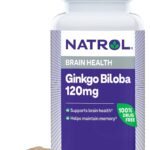Stay on Top of Your Health: The Importance of Routine Checkups
Understanding the Importance of Routine Checkups
In today’s fast-paced world, it’s easy to put off health checkups until something is wrong. However, this approach can lead to a range of negative consequences, from missed diagnoses to inadequate treatment. Routine checkups are a crucial part of maintaining good health, allowing you to stay on top of your well-being and catch any potential issues early on. By prioritizing regular checkups, you can reduce your risk of developing chronic diseases, alleviate symptoms, and improve your overall quality of life.
The Benefits of Preventive Care
Preventive care is a type of healthcare that focuses on preventing illnesses and detecting diseases early on. Regular checkups fall under the category of preventive care, providing you with a comprehensive physical examination, health screening, and personalized health advice. By incorporating preventive care into your routine, you can enjoy a range of benefits, including reduced healthcare costs, improved health outcomes, and enhanced overall well-being. Additionally, preventive care can help you stay proactive about your health, reducing your reliance on emergency healthcare services.
Detecting Health Issues Early On
One of the most significant advantages of routine checkups is the ability to detect health issues early on. By scheduling regular checkups, you can catch any potential problems before they develop into more serious conditions. For example, routine mammograms can detect breast cancer in its early stages, when it’s most treatable. Similarly, blood pressure checks can identify hypertension, allowing you to make lifestyle changes to manage your condition. By detecting health issues early on, you can reduce your risk of complications, alleviate symptoms, and improve your treatment options.
Staying Connected with Your Healthcare Provider
Regular checkups provide you with an opportunity to build a strong relationship with your healthcare provider. By maintaining open lines of communication, you can stay connected with your provider, asking questions, and seeking guidance on any health concerns you may have. This connection is particularly important for individuals with chronic conditions, such as diabetes or hypertension, which require ongoing management and care. By staying connected with your provider, you can work together to develop a personalized treatment plan, tailored to your unique needs and circumstances.
The Role of Technology in Routine Checkups
Technology is revolutionizing the way we approach healthcare, including routine checkups. Telemedicine platforms allow you to schedule virtual checkups, reducing the need for in-person visits. Electronic health records (EHRs) provide healthcare providers with instant access to your medical history, facilitating more accurate diagnoses and more effective treatment plans. Moreover, mobile apps can remind you of upcoming appointments, track your vital signs, and offer personalized health advice. By embracing technology, you can streamline your checkup process, improve communication with your provider, and enhance your overall healthcare experience.
The Impact of Lifestyle on Health Checkups
Your lifestyle plays a significant role in the success of your routine checkups. By adopting healthy habits, such as regular exercise, a balanced diet, and adequate sleep, you can reduce your risk of developing chronic diseases. A healthy lifestyle can also enhance your mental well-being, reducing stress and anxiety, and improving your overall mood. By prioritizing lifestyle changes, you can reap the benefits of preventive care, reducing your reliance on healthcare services and improving your overall quality of life.
Overcoming Barriers to Routine Checkups
Despite the importance of routine checkups, many individuals face barriers to accessing this type of care. Busy schedules, lack of health insurance, and limited transportation options can all contribute to missed appointments. However, there are steps you can take to overcome these barriers. For example, scheduling checkups during off-peak hours, utilizing community health centers, and partnering with a healthcare navigator can all help you access the care you need.
The Role of Insurance in Routine Checkups
Insurance plays a critical role in routine checkups, providing you with financial protection against medical expenses. By investing in a comprehensive health insurance plan, you can ensure that you have access to routine checkups, regardless of your financial situation. In addition, many insurance providers offer additional benefits, such as wellness programs and discounts on healthy habits. By taking advantage of these benefits, you can improve your overall health and reduce your reliance on healthcare services.
Conclusion
In conclusion, routine checkups are a crucial part of maintaining good health. By prioritizing regular checkups, you can detect health issues early on, stay connected with your healthcare provider, and reduce your risk of developing chronic diseases. With the help of technology, insurance, and a healthy lifestyle, you can overcome barriers to routine checkups and reap the benefits of preventive care. Remember, staying on top of your health is a critical aspect of living a happy, healthy, and fulfilling life.



















